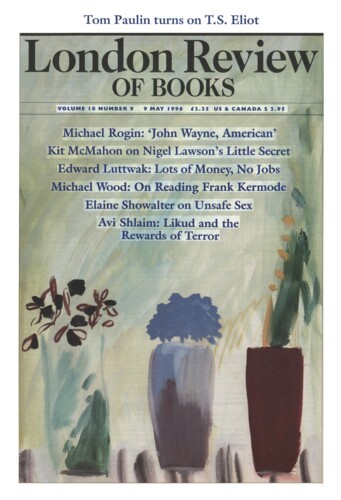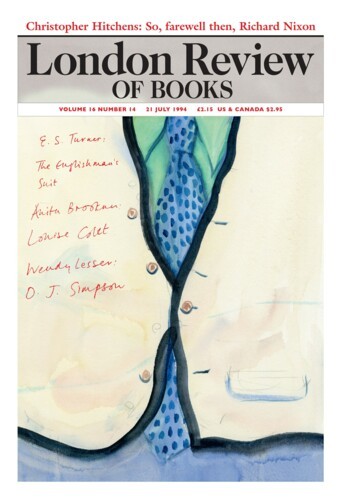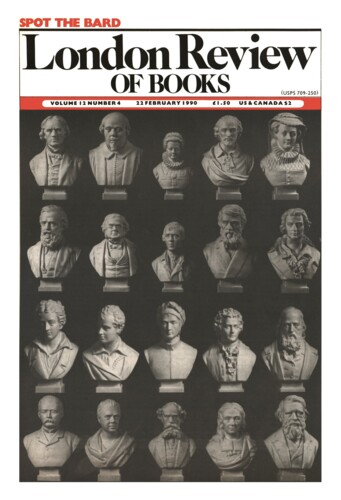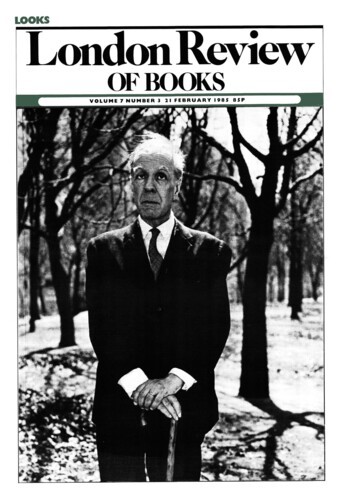Bernard Bergonzi
Bernard Bergonzi is a professor of English at the University of Warwick. He is currently working on a book to be called English after Leavis.
Easy
21 July 1994
Bardbiz
22 February 1990
An English Vice
Bernard Bergonzi, 21 February 1985
In parts of our literary culture the idea of the self is derided as a bourgeois fabrication, ripe for deconstruction. But most readers remain very attached to selves, their own and other people’s, and like reading about them in biographies and autobiographies. Such books are evidently popular with publishers, and accounts of them regularly fill the review columns of the Sunday papers. But the idea of the self may be less simple than naive readers imagine; the writer of an autobiography may be not so much expressing a self as creating one in the process of writing his book, a point made in these two new studies of autobiography. It was once regarded as just as much a form of literature as poetry or fiction, but with the institutionalising of literary study it has been comparatively neglected by academic critics. Roy Pascal’s Design and Truth in Autobiography, published nearly twenty-five years ago, remains an indispensable pioneering work; more recently John Pilling’s Autobiography and Imagination provided some interesting studies of particular autobiographies by eminent Anglophone or Continental writers but without much discussion of the nature of autobiographical form. Jerome Hamilton Buckley and A.O.J. Cockshut take the discussion further, in complementary studies of developments since 1800.
Pieces about Bernard Bergonzi in the LRB
Unsaying: Thomas Arnold’s Apostasies
Philip Davis, 15 April 2004
Roughly every ten years there was a crisis and an upheaval. In 1847, in his early twenties, he lost his faith, but in 1856 he converted to Catholicism. In 1865 he returned to Anglicanism, only to...
John Sutherland writes about the Condition of English question
John Sutherland, 5 April 1990
In March 1889 Edward Arber applied for the vacant chair of English Literature and Language at University College London. Arber’s career had been unusual. He began his working life at 17 as...
Modernisms
Frank Kermode, 22 May 1986
The advantages and disadvantages of modernity have long been canvassed, so that you could say the topic is ancient. Pancirolli wrote a very popular book on it in the 16th century, and it was...
Idaho
Graham Hough, 5 March 1981
Ruth and Lucille are sisters, living in Fingerbone on Fingerbone Lake. At the bottom of the lake lies their grandfather, who was guard on a train that plunged off the bridge one night, years...
Read anywhere with the London Review of Books app, available now from the App Store for Apple devices, Google Play for Android devices and Amazon for your Kindle Fire.
Sign up to our newsletter
For highlights from the latest issue, our archive and the blog, as well as news, events and exclusive promotions.




